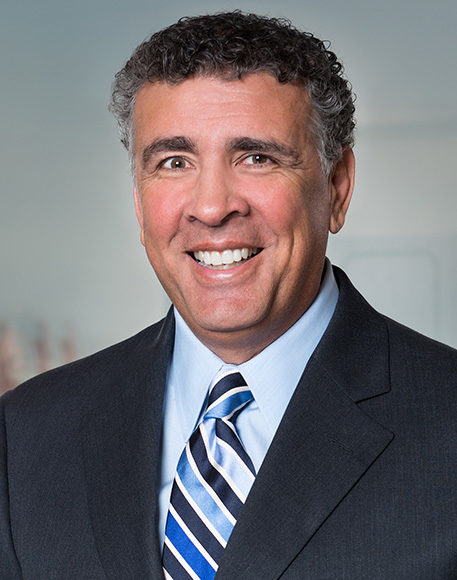Resident-on-Resident Abuse in Nursing Homes
 When people think of nursing home abuse, they often imagine mistreatment by caregivers or staff members. However, there’s another form of abuse that is sometimes overlooked: resident-on-resident abuse. This type of abuse involves one nursing home resident harming or harassing another, and it can be just as damaging as abuse from staff. For families and loved ones, it’s essential to be aware of this issue and to understand the legal options available when resident-on-resident abuse occurs.
When people think of nursing home abuse, they often imagine mistreatment by caregivers or staff members. However, there’s another form of abuse that is sometimes overlooked: resident-on-resident abuse. This type of abuse involves one nursing home resident harming or harassing another, and it can be just as damaging as abuse from staff. For families and loved ones, it’s essential to be aware of this issue and to understand the legal options available when resident-on-resident abuse occurs.
The nursing home abuse attorneys at Garcia & Coman are committed to holding facilities accountable for preventing and addressing all forms of abuse, including those between residents.
What is resident-on-resident abuse?
Resident-on-resident abuse is any form of mistreatment, harm, or harassment inflicted by one nursing home resident onto another. This abuse can take many forms, including physical violence, verbal harassment, sexual assault, or even emotional abuse through bullying or isolation. It may occur in common areas, shared living spaces, or even behind closed doors in residents’ rooms.
The National Library of Medicine notes that resident-on-resident abuse comprises 22% of reported nursing home abuse.
Common forms of resident-on-resident abuse include:
- Physical abuse: Physical abuse occurs when one resident uses physical force to harm another. This can include hitting, slapping, kicking, pushing, or grabbing. In some cases, more vulnerable residents may be repeatedly targeted by those who are more physically capable.
- Verbal and emotional abuse: Name-calling, threats, bullying, and isolation are common forms of emotional abuse that can significantly impact a resident’s mental health.
- Sexual abuse: Any non-consensual sexual contact or activity falls under this category. Residents with cognitive impairments are especially vulnerable, as they may not fully understand or be able to communicate what is happening.
- Financial exploitation: Some residents may exploit others by stealing money or possessions or exerting undue pressure to gain financial control over them.
Resident-on-resident abuse can happen to anyone in a nursing home, but certain groups are at higher risk. Residents with dementia, Alzheimer’s disease, or other cognitive impairments may be more vulnerable because they may not fully understand what is happening or may struggle to communicate the abuse to caregivers or family members. Additionally, residents who are physically frail or have limited mobility may not be able to defend themselves against aggressive or predatory behavior from others.
Why does resident-on-resident abuse happen?
A variety of factors contribute to resident-on-resident abuse in nursing homes. Understanding the root causes of these incidents can help us determine where negligence may lie and how facilities can be held accountable.
Cognitive impairments
Many nursing home residents suffer from cognitive impairments, including dementia or Alzheimer’s, which can lead to aggressive or unpredictable behavior. In some cases, residents with these conditions may not understand their actions or may have trouble controlling violent or abusive impulses. When nursing homes fail to properly monitor residents with cognitive impairments, the risk of abuse increases.
Overcrowded or understaffed facilities
Overcrowded or understaffed nursing homes often struggle to provide adequate supervision and care for their residents. When caregivers are stretched thin, they may not have the time or resources to monitor residents’ interactions, making it easier for abuse to go unnoticed. Additionally, underfunded or understaffed facilities may have difficulty separating residents with behavioral issues from more vulnerable individuals, leading to more opportunities for resident-on-resident abuse.
Inadequate staff training
Nursing home staff must be properly trained to recognize and respond to signs of resident-on-resident abuse. In some facilities, staff members may lack the education or experience to effectively handle conflicts between residents or intervene when abuse occurs. Without proper intervention, these incidents can escalate, putting residents at risk.
Poor resident placement
Nursing homes are responsible for placing residents in appropriate living environments based on their physical, mental, and emotional needs. If a resident with a history of aggressive or violent behavior is placed in a room or common area with a vulnerable resident, the risk of abuse is higher. Poor placement decisions can lead to dangerous interactions between residents, and nursing homes must be held accountable for these lapses in judgment.
Lack of supervision
One of the most significant contributors to resident-on-resident abuse is a lack of proper supervision. Nursing homes are responsible for monitoring residents, especially those with known behavioral issues or cognitive impairments that increase the likelihood of aggression. When facilities fail to provide adequate oversight, abuse can go unnoticed, leaving victims vulnerable.
Nursing homes’ responsibility to prevent resident-on-resident abuse
Nursing homes have a legal obligation to provide a safe environment for all residents. When a nursing home fails to prevent or address resident-on-resident abuse, it can be held liable. Facilities are responsible for:
Following are some key responsibilities nursing homes have to protect residents from abuse.
Assessing residents during admission
Upon admission, nursing homes must assess each resident’s physical, mental, and emotional health. This assessment helps determine the resident’s needs and whether they are likely to pose a risk to others. If a nursing home fails to properly assess a resident with a history of aggressive or violent behavior, they may place other residents in danger.
Creating individualized care plans
Nursing homes are required to develop individualized care plans for each resident. These care plans should address any behavioral concerns, including aggression or violence, and outline specific strategies to prevent harm. If a nursing home does not create an appropriate care plan or fails to follow the plan, it can be held liable for abuse that occurs as a result.
Monitoring and supervision
Nursing homes must provide adequate supervision of residents, especially those with cognitive impairments or behavioral issues. This includes monitoring interactions between residents, intervening when conflicts arise, and separating residents who may pose a risk to others. When nursing home staff fail to provide proper supervision, they create an environment where abuse can occur.
Responding to reports of abuse
Nursing homes must take reports of resident-on-resident abuse seriously and act swiftly to address the situation. This includes investigating the incident, separating the residents involved, and taking steps to ensure that abuse does not happen again. If a facility ignores reports of abuse or fails to take appropriate action, it can be held liable for any further harm that occurs.
Providing proper staff training
Nursing home staff must be trained to recognize the signs of resident-on-resident abuse and to intervene effectively. This includes understanding how to de-escalate conflicts, protect vulnerable residents, and report incidents to supervisors. Facilities that fail to provide proper training leave their staff ill-equipped to handle abusive situations.
What are the legal options for victims of resident-on-resident abuse?
If your loved one has been a victim of resident-on-resident abuse, it’s important to understand your legal rights and options. Nursing homes can be held accountable for failing to prevent or address abuse, and families may be entitled to compensation for the harm caused.
As nursing home abuse attorneys, we can help you pursue the following legal actions:
- Filing a negligence lawsuit against the facility: If the nursing home failed to provide proper supervision or ignored behavioral issues, you may be able to file a lawsuit for damages.
- Pursuing a personal injury claim: If the abuse resulted in physical or emotional harm, a personal injury claim can provide compensation for medical expenses and emotional distress.
- Reporting the abuse to state authorities: In addition to legal action, families can report resident-on-resident abuse to state regulatory authorities. Nursing homes are subject to oversight by state agencies, and reporting abuse can lead to investigations and penalties for the facility.
- Pursuing a wrongful death claim: If abuse led to your loved one’s death, a wrongful death lawsuit can hold the facility accountable and provide compensation for the family’s loss.
If your loved one has experienced abuse from another resident in a nursing home, it’s critical to take immediate action. Our experienced nursing home abuse attorneys are here to help you navigate the legal process and hold the facility accountable. Contact us for a free consultation, and let us fight for your loved one’s safety, dignity, and right to proper care. Don’t let nursing homes get away with neglect—reach out now to protect your loved one’s rights. Call our nursing home lawyers or fill out our contact form to schedule a free consultation today. As a national firm, our offices are in Los Angeles, Phoenix, Long Beach, Louisville, and New Orleans.

Stephen M. Garcia represents victims of elder and nursing home abuse and is known as one of the leading civil litigators in the country. He is Senior Partner at Garcia & Coman, where the firm’s practice is focused on elder abuse, nursing home abuse, and wrongful death of the elderly.
Find out more about Stephen M. Garcia

